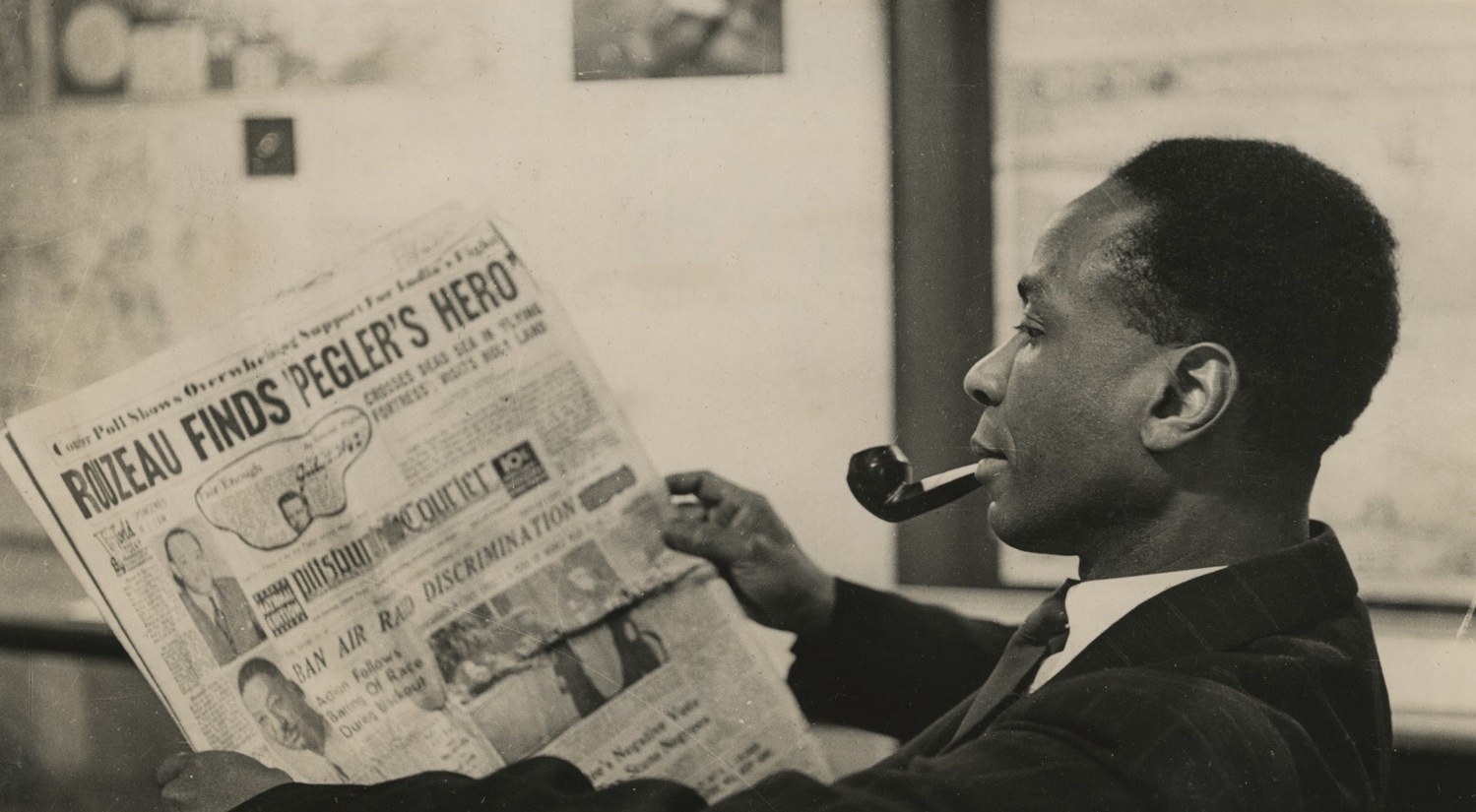
Born Malcolm Nurse, George Padmore grew up in colonial Trinidad where he experienced an Anglicised education centred around British history, literature and traditions. When he left school, Padmore moved to the USA for university. There, he joined the Communist Party of the USA, rising rapidly through the ranks before being sent to the USSR as a delegate.
Soon after, Padmore became a central figure in the international Communist apparatus, running what became the International Trade Union Committee of Negro Workers (ITUC-NW), amongst the earliest and most widespread international organisations to contest racism and imperialism on a global scale. Padmore was also the earliest editor of their renowned periodical, The Negro Worker.
What did he do?
During his time with the ITUC-NW, Padmore travelled across Europe and beyond, building an international range of contacts amongst black and colonial activists and trying to foment revolutionary opposition to racism and imperialism.
Yet Padmore was to break acrimoniously with the international Communist movement in 1933, at least in part because of disagreements he had with the line taken by the USSR over European imperialism, which he felt was not tough enough.
By the mid-1930s, Padmore had settled in London. There, he met his childhood friend from Trinidad, C.L.R. James, a fellow colonial militant finding his way in radical politics having explicitly rejected international Communism. The two worked together and in 1937 founded the International African Service Bureau. This remarkable collective, small as it was, held rallies in Trafalgar Square, organised conferences and agitated on behalf of colonial peoples against racism and for independence from imperialism.
At the same time, Padmore used both his prodigious writing talents and his global range of contacts to write frequently for a range of newspapers, becoming a truly global journalist. In Britain, his articles appeared frequently in the Independent Labour Party’s paper, The New Leader. In the USA he was published in the National Association for the Advancement of Coloured Peoples’s periodical, The Crisis, as well as being London correspondent for a range of newspapers in America’s black press.
What were his ideas?
Padmore was not primarily a theoretical writer. Instead, he reported on events, and allowed the weight of accumulating evidence to do the work of illustrating the malign effects of imperialism. Yet he did work to develop one conceptual approach to the question of empire.
At the height of the 1930s, many on the British left saw the Empire as an important bulwark against the rise of Nazism in Germany. Only a strong empire, they figured, would be able to strongly oppose and face down Hitler’s global ambitions, and this vision underlined a form of left imperialism.
Yet Padmore rejected this. Instead, he developed the concept of ‘colonial fascism’ to highlight the parallels between what was being criticised in Germany, and the actions of the European colonial powers – particularly Britain – in their colonial territories. For example, when workers across his native Caribbean went on strike and rioted against their poverty wages and the poorly developed social infrastructure of their islands, Padmore was quick to highlight the repression enacted by the colonial government – the passing of new sedition laws, the widespread arrest of labour leaders and radicals on trumped up charges, and displays of force backed up by the imperial armed forces – in order to illustrate how such attempts to ‘stifle all criticism’ were representative of ‘fascism in the colonies’. Padmore worked hard to highlight these parallels between Nazism and imperialism, and argued that the only way to overcome such colonial fascism was to foster unity between workers of all races in opposition to imperialism.
In 1945, Padmore was at the heart of an activist collective that organised the Pan-African Congress, held in Manchester. In the post-war years Padmore remained influential in the campaign against imperialism, being an important influence on Kwame Nkrumah in particular. Padmore continued to argue for a pan-African militancy that remained autonomous from the international Communist movement, most notably in his book Pan-Africanism or Communism?
What is his legacy?
Padmore’s memory burns brightly at the George Padmore Institute in North London, yet his legacy has been all too forgotten by many. He was a tireless agitator, much in demand as a public speaker and an inveterate journalist who saw the importance of cultivating an international network of correspondents and activists in an age when technology did not facilitate such global activism. In that sense, Padmore was a thoroughly modern activist.
His efforts to highlight the role played by racism in global oppression, whilst simultaneously arguing that it could only be overcome through concerted opposition by workers of all races, seems today like an important conceptual pre-cursor to contemporary discussions of intersectionality.
Padmore was also an early critic of the direction that the ‘Trade Union hierarchy and right-wing political Labour leaders’ were taking the Left, and as we re-read his writings today, it is difficult not to see the foresight in his 1944 prediction that ‘The path of Empire and Power Politics held out to them [the British working classes] by the Tories and their Labour supporters means war and economic disaster.’